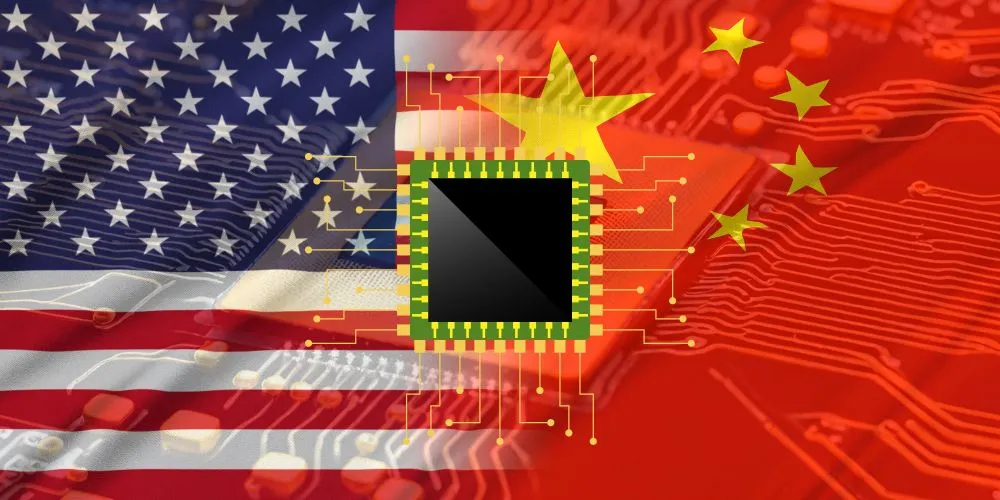Key Points:
- U.S. chipmakers, including Intel, Broadcom, Qualcomm, and Marvell Technology, rely heavily on revenue from the Chinese market.
- Export controls imposed by the U.S. aim to restrict China’s access to advanced chip technology, but certain products remain exempt.
- Despite regulatory hurdles, U.S. chipmakers continue to serve Chinese clients through modifications and export licenses.
- China responds with efforts to achieve semiconductor self-reliance, offering subsidies to chip firms and promoting local chip procurement.
Despite Washington’s ongoing efforts to restrict chip sales to China and Beijing’s push for self-sufficiency in the semiconductor sector, China remains a crucial market for most American chipmakers, as highlighted by data from S&P Global. Leading players like Intel, Broadcom, Qualcomm, and Marvell Technology derive more revenue from China than the U.S.
The U.S. has implemented export controls to limit China’s access to advanced chip technology, particularly AI applications. However, according to industry experts, these restrictions have been designed to allow most U.S. firms to continue selling various types of chips to Chinese customers.
Since their ubiquitous presence in a wide range of products, semiconductors have become a top priority for governments worldwide, from smartphones to electric vehicles. China, consuming nearly half of the world’s semiconductors, represents the largest market for assembling consumer devices.
Despite export curbs, U.S. chipmakers with technological leadership over Chinese counterparts have been able to tap into this demand, focusing on specific products not subject to restrictions. Even amid export controls, U.S. chipmakers have strived to serve their Chinese clients, with some designing modified versions of AI chip products tailored for the Chinese market. However, the U.S. has updated export rules to address perceived loopholes, prompting ongoing adjustments by companies like Nvidia.
While facing regulatory challenges, companies like Intel have continued to engage with Chinese clients through export licenses, emphasizing the importance of the Chinese market for their business. In response to U.S. actions, China has pursued self-reliance by bolstering its domestic semiconductor industry, offering substantial subsidies to chip firms, and promoting domestic companies’ procurement of locally made chips.
Despite China’s efforts, American companies like Nvidia and Intel maintain a significant technological lead, particularly in the AI GPU market segment, where they outpace Chinese competitors by several years.




